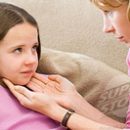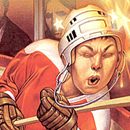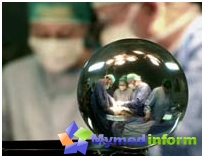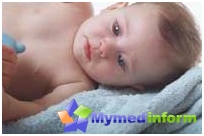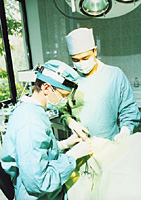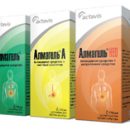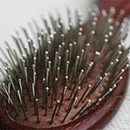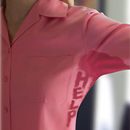The concussion of the brain is one of the most common diagnoses in children's traumatology. In general, the cranial and brain injury (CHMT) ranks first among all the injuries of children's age, requiring hospitalization. Approximately 120 thousand children with a concussion of the brain annually enter the hospital in Russia.
Content
According to the severity of the brain injury
divided into light (concussing brain), moderate severity
(brain injury light and medium severity, with possible
fractures of the bones of the skull) and heavy (brain bruises
severe, intracranial hematomas with brain squeezing, fractures
The base of the skull). Fortunately, up to 90% of Children's CMT accounts for
concussion brain, which will be discussed in this article.
A high level of injury in children is explained by the increased
the motor activity of the child, his restlessness and
curiosity that combines with the imperfection of the motor
skills and coordination of movements, as well as a reduced sense of danger and
Fear of height. In addition, young children have a head
relatively large weight, and the skill of insurance with their hands is not yet developed,
Therefore, small children fall, as a rule, down their heads and hands are not
Substitute.
Causes of children's chmt are very specific for each age group.
Newborn in the total mass of victims make up 2%, breast kids
Age — 25%, nursery — 8%, preschool — 20% and school age
45%.
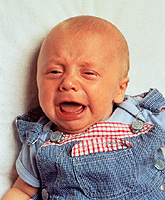
Injuries in babies — This is primarily the result of the inattention and
The carelessness of their parents. Children up to 1 year most often (more than 90%!)
Get injuries to the head after falling from changing tables, beds,
From the hands of parents, from wheelchairs and t.NS. Never leave baby
one in the place where he can fall. If you need to move away from the child
per distance, more than in a pulling hand, do not be lazy, put
him in the crib, in a stroller with sides, in a playpen! One or two seconds
It happens enough to kroch to roll towards the edge of the changing table
and fell.
Starting from 1 year old kids start walking. The main reason
CMT becomes a fall from the height of one's own growth, and a little later —
Falls with stairs, trees, roofs, windows, slides, etc. Episode Himself not
always manage to reveal. It should be borne in mind that if a child
remained under the supervision of relatives, neighbors or nanny, then they can
Hide from parents Fact Fall Baby.
Older children themselves for various reasons
Often drag injury. In addition, children may damage
brain without immediate injury. These damage usually
occur when exposed to the body of a sharp acceleration or
Brakes (syndrome «Shake baby»). Syndrome «Shake
child» most often observed under the age of 4-5 years and can
arise with rough circulation, jumping from height to feet, and in children
younger age even when they are excessively intense tech.
Manifestations of concussion of the brain
When concussing the brain in it does not happen,
It should be remembered that the cerebral of the child (and especially the infant)
In adulthood, the concussion of the brain is manifested
In children under 1 year old, the concussion of the brain is usually,
Preschool children often manage to establish fact
Sometimes children have such a symptom as post-traumatic
Features of the children's body lead to the fact that long
irreversible changes, and such injury, being the most frequent, has
the best forecast and very rarely leads to complications.
significantly different from the brain of an adult. Picture of concussion
The brain in adults is significantly different from this
Injuries in the child.
The following main features: Episode loss of consciousness from several
seconds up to 10-15 minutes; nausea and vomiting; headache; amnesia
(dropping out of memory) Events related to injury (before injury, herself
injury and after injury). In addition, some specific
neurological symptoms, such as nistagm (vent
Apples), disruption of coordination of movements and some others. Painting
shaking brain in a child completely different.
Malosimptomno proceeds. The loss of consciousness does not happen more often, notes
Single or multiple vomiting, nausea, jerking when feeding,
skin pallor, unfortunate concern and crying, elevated
drowsiness, lack of appetite, bad sleep.
loss of consciousness, nausea and vomiting after injury. They are noted
Headache, Beating or Slowing Pulse, Unstable
blood pressure, pallor of skin, sweating. Wherein
It is often noted by capriciousness, plasticity, sleep disorder.
blindness. It develops immediately after injury or a little later,
persists for a few minutes or hours and then
independently disappear. The reason for this phenomenon is not clear.
Compensation status can change the rapid deterioration. That
There is immediately after the fall, the child feels satisfactory, but
after a while it appears and starts to increase quickly
Symptomatics.
We take urgent measures
What to do parents whose child got a cranial brain
injury? The answer is one — the child should necessarily and urgently
show a doctor. It's best to call «ambulance», that
Be sure to take the child to a hospital having children's neurosurgeons
or neuropathologists. And this measure is not excessive. With minimal
symptoms and complaints in the kid can be difficult damage
brain. Prolonged visible child well-being
symptoms, especially with hemorrhages in the brain, often
A few hours later, and even days is replaced by progressive deterioration
states that begins with changes in the child's behavior, its
increased excitability, may be nausea, vomiting, nystagm,
Breasts blows the spring, then drowsiness appears, observed
Depression of consciousness.
Diagnostics
In the hospital, a child inspects a children's neuropathologist, neurosurgeon or
Radiography skulls are carried out most of the patients. Purpose
Neurosonography (NSG) — This is an ultrasound study
The ideal method of diagnosing damage and brain diseases is computed tomography
Magnetic resonance tomography (MRI) — the most accurate but
Electroencephalography (EEG) allows you to learn
Lumbal puncture — This is a fence of a liquid (fluid ishing
traumatologist. He carefully finds out the complaint, collects anamnesis (story
Diseases) conducts a general and neurological examination. Appointed
Additional diagnostic methods. Radiography are basic
Skulls, neurosonography (in young children), echo encephalography
(Echo EG). If necessary — Computer tomography brain
(CT), magnetic resonance tomography (MRI), electroencephalography (EEG),
Lumbal puncture.
This study is to identify the fractures of the skull. Availability
any damage to the bones of the skull automatically translates the injury in
The discharge of medium-heavy or heavy (depending on the child's condition).
Sometimes young children with a prosperous clinical picture on
Radiographs revealed linear fractures of bones of the skull. Judge O
The state of the substance of the brain on radiographs is impossible.
brain. On neuralonograms, a substance of the head is clearly visible
Brain, ventricular system. You can identify signs of head edema
Brain, foci of injury, hemorrhages, intracranial hematomas. Procedure
simple, painless, quickly executed, does not have contraindications.
It can be revealed repeatedly. Single limit
neurosonography — The presence of the so-called «Natural ultrasound
windows» — large spring or thin temporal bones. Method is very
Effective in children under the age of 2 years. Later ultrasound
It becomes difficult to pass through the thick bones of the skull, which is sharp
worsens image quality. Equipment for execution
neurosonography is available in most children's hospitals.
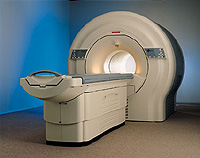 Echo-encephalography (Echo EG) — It is also an ultrasound method
Echo-encephalography (Echo EG) — It is also an ultrasound method
Research that allows you to identify the displacement of the middle line structures
brain, which may indicate the presence of additional
bulk brain formations (hematoma, tumor), give
indirect information on the state of the brain substance and
ventricular system. This simple and fast method, however reliability
His low. He used to be widely used in neurotramatology, but
with modern diagnostic tools, such as
neurosonography, computer and magnetic tomography, from him
You can completely refuse.
(CT). This is a radiological research method at which with high
Clarity You can get images of the bones of the skull and substance of the head
Brain. Almost any damage to the bones of the arch is diagnosed on CT
and the base of the skull, hematomas, the foci of the injury, hemorrhage, foreign
body body skull and pr. The accuracy of this study is very high. His
The main disadvantage is that the CT apparatus of roads, and it is
far from every hospital.
Complex and expensive method of examination of the central nervous system. He
rarely used to diagnose acute acute brain injury so
How does it not allow to see the bones of the skull, less accurate for recognition
sharp hemorrhages, takes more time than computer
Tomography often requires anesthesia when examining young children —
The child should lie absolutely motionless for 10-20 minutes, and
Little children cannot do this; Also very few
Clinics can boast the presence of magnetic resonance tomographs.
Bioelectric brain activity. It is used by
Special indications for assessing the severity of the cranial brain
Injuries, detecting foci of epileptic activity. The focus of epiacivity
— Scope of the cerebral cortex with pathologically modified activity
neurons (nerve cells) that can lead to occurrence
epileptic attacks.
head and spinal cord) from the spinal cord on the lumbar
Level. Changes in liquor may indicate injury or
hemorrhage (presence of blood) or inflammatory process, meningitis.
Lumbal puncture is extremely rare and only on special
Indications.
Tactics of treatment
After the baby fell, before he examines the doctor, help
In addition to the diagnostic procedures in the reception room, the hospital is carried out
Hospitalization has several goals.
First, within a few days, the child is under control
Secondly, during hospitalization, the patient provides the creation
Medical therapy with a concussion of the brain has
Monitoring the condition of children is carried out by attending and duty
Offering to go to the hospital, the doctor first of all cares about
With a satisfactory condition of the baby in a few days
As a rule, after 2-3 weeks the condition of the child is fully coming in
In conclusion, it is once again necessary to emphasize the importance in a timely manner
The child is to create a relaxing situation. Need to lay
Baby, to ensure peace. If there is bleeding from the wound,
make it possible to process and binting.
Processing of damage to the soft tissues of the head (bruises, abrasion, wounds). Children,
Especially early age, with a confirmed brain injury, in
including with a concussion of the brain, are subject to mandatory
hospitalization.
doctors in hospital conditions for early detection and prevention
Complications of injury — brain edema, intracranial appearance
hematoma, epileptic (convulsive) attacks. The probability of these
complications are small, but the consequences of their extremely heavy and can lead to
catastrophically rapid deterioration of child. Therefore, when
Brain concussion Standard hospitalization period is
week. With good technical equipment in the hospital (computer
Tomography, neurosonography), allowing to eliminate heavier
Brain damage, the period of stay in the hospital can be reduced to 3-4
Days.
psycho-emotional rest. This is achieved by the engine limit and
Social activity of the child. Certainly achieve completely
beddown for children is difficult, but still the conditions of the hospital are not
allow running, noisy games, long watching TV, seats for
Computer. After discharge, the home mode is preserved during
1.5-2 weeks, a few weeks are limited to sports.
Several goals. First of all, the child is appointed diuretic
Preparations (most often diakar, less often — Furosemide) in mandatory
Combinations with potassium preparations (Asparkama, Panangin). This is done for
Prevention of edema of the brain substance. Conducts soothing
Therapy (phenozepam, infusion of Valerian root) and are prescribed
Antihistamines (Suprastin, Diazolin, Dimedrol). With heads
Analgesics (barallgine, sadalgin) are appointed pain, with pronounced
Nausea — Cerucal. In later dates, nootropic
Preparations that improve the exchange processes in the brain, vitamins.
doctor as well as post nurses. In case of any deterioration
A re-examination of the child is carried out, additional
Diagnostic studies (neosonography, computed tomography,
EEG).
Do not miss heavier than concussion brain, injury,
And this is possible only with a qualified observation of the child.
Parents can pick it up on receipt. However, at home required
Observe the medical and security mode, limit the view
TV, games on a computer, walks, visiting friends, continue
Medical therapy. With any suspicion of deterioration
child (the appearance of nausea and vomiting, headaches, unmotivated
drowsiness, convulsive attacks, appearance of weakness in the limbs,
Frequent shinking from kids) should immediately turn to
doctor for reassembly and possible hospitalization.
norm. Concussion of the brain usually passes without consequences and
Complications. The child can visit the nursery and kindergarten, engage
Sports.
appeals to a specialized children's hospital, which will allow
eliminate the heavier forms of the brain injury.

